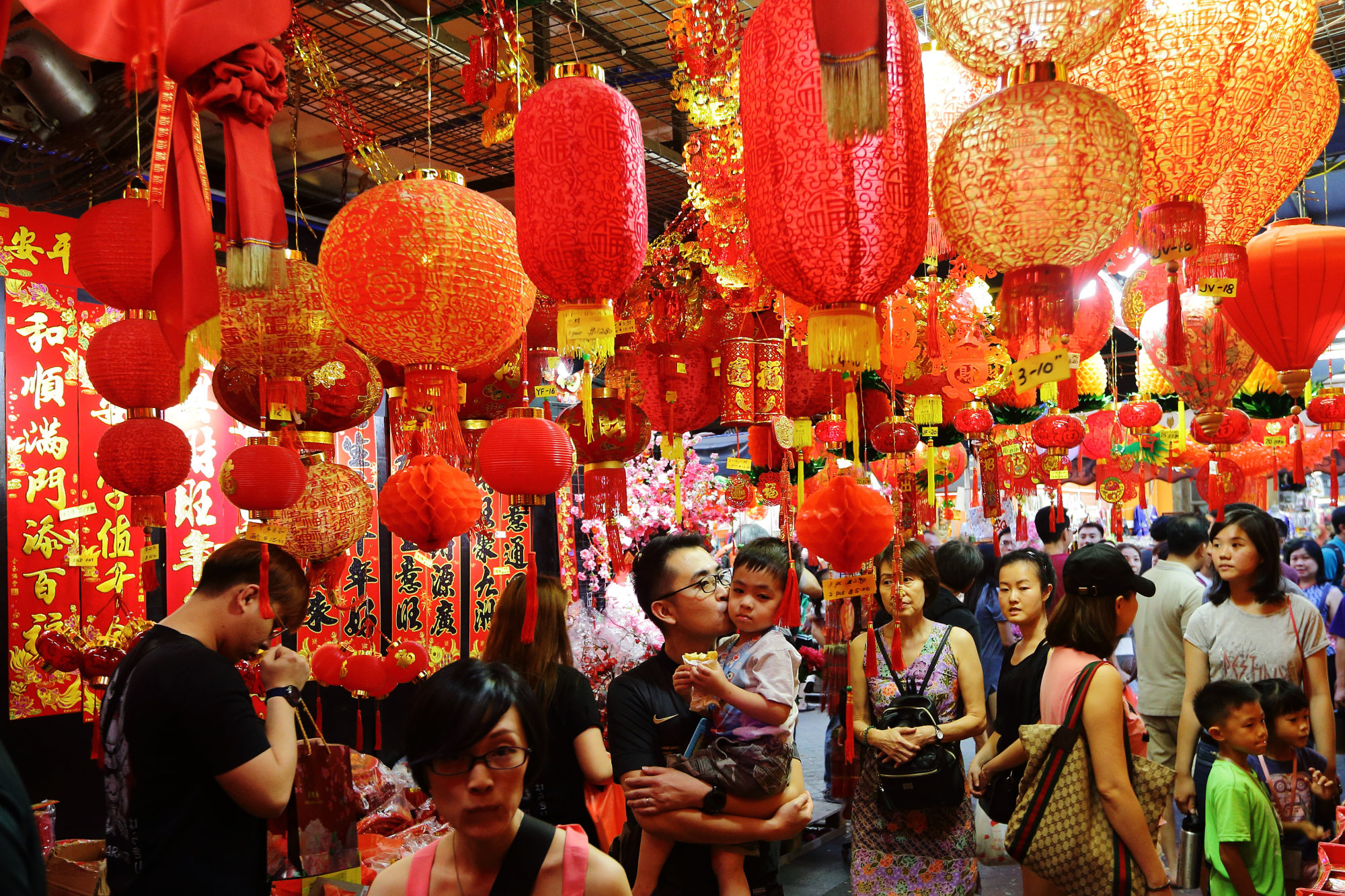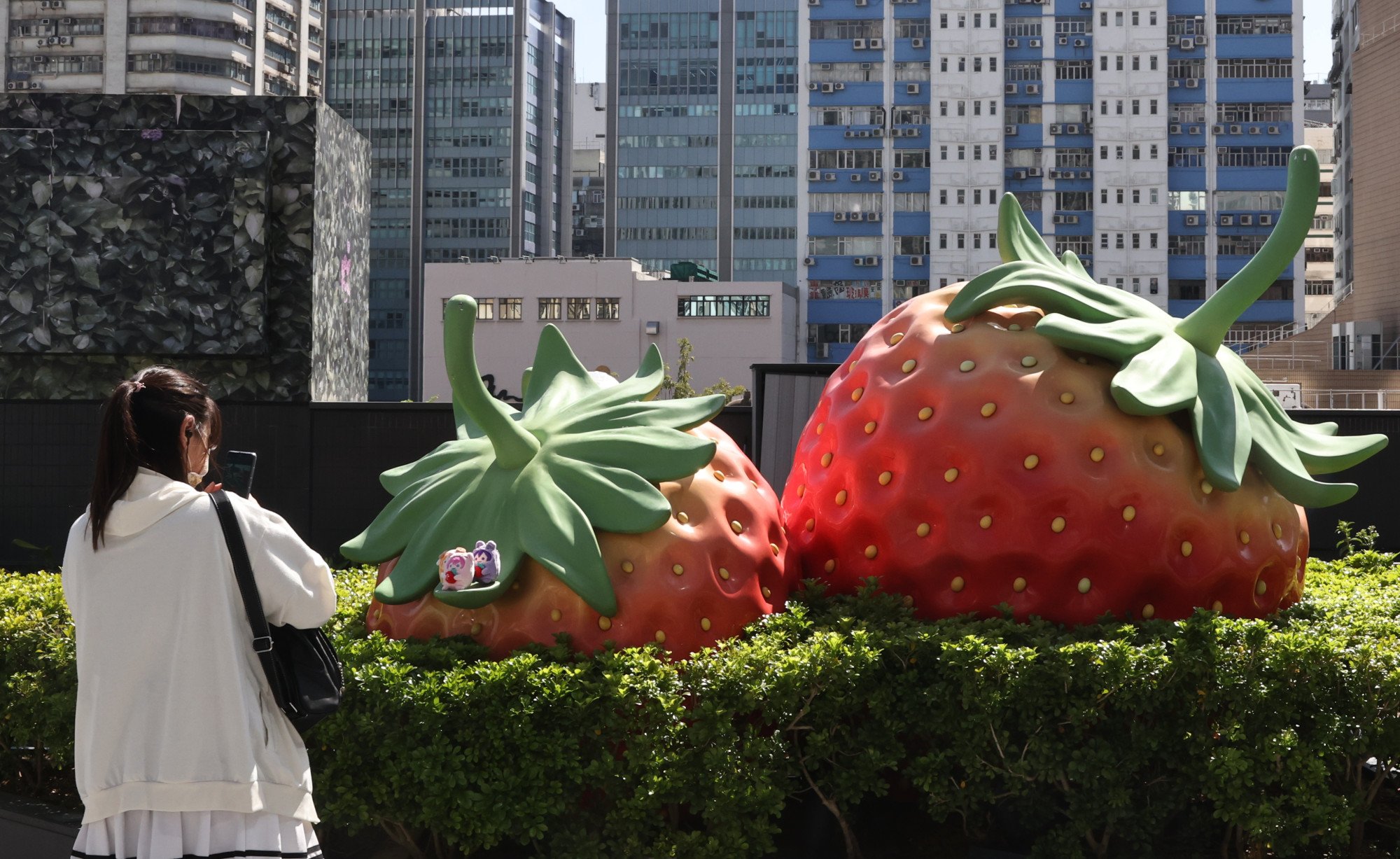
No ‘cultural cringe’: Lunar New Year traditions of Chinese in Singapore and Malaysia reflect culture of borrowing from others – just look at Cantonese
- The custom of communally tossing a shredded vegetable dish known as ‘yusheng’ while shouting for wealth is exclusive to Singaporean and Malaysian Chinese
- Such ‘traditions’ are relatively new, or owe a debt to other cultures; in similar vein, the Chinese language and its dialects contain many ‘loan words’
It’s that time of the year again when we’re assaulted by things red and gold, and loud felicitations, most of which have to do with wealth, or the wish to acquire more of it. Yes, Lunar New Year is upon us.
Recently made resolutions to get fit and lose weight are put on hold for the next few weeks to fully avail ourselves of the many varieties of festive foods. The Chinese in Singapore and Malaysia have our own festive fare, some of which isn’t found in other Chinese communities elsewhere, or aren’t even Chinese in origin.
One of the most distinctive Lunar New Year dishes enjoyed in the two countries is yusheng. It’s a salad of shredded fresh and pickled vegetables, raw fish slices, pulverised peanuts and other crunchy bits, which are communally tossed around a table by chopsticks-wielding diners.
As they reach forward and stab their chopsticks into the yusheng, they shout words and phrases that – again – have to do with wealth, or the wish to acquire more of it, though in recent times wishes for good health are given a shout-out, for obvious reasons.

Some also believe that the higher they toss the salad ingredients and the louder they shout their wishes for the new year, the higher the likelihood that those wishes will come to pass. So yusheng is not only a New Year dish that’s unique to Singapore and Malaysia, it’s also the messiest and noisiest.
The word yusheng is the Pinyin romanisation of the original Cantonese yue-saang, which means raw fish. Many Malaysians now pronounce it yee-sang, quite different to its original Cantonese pronunciation and intonation.
While the provenance of yusheng is an issue of some debate and controversy, most agree that it was invented by Cantonese-speaking chefs in the region and had become popular among the Chinese communities there by the middle of the 20th century. Hence, it’s a relatively new Lunar New Year tradition in Singapore and Malaysia.
As a Singaporean of Chinese descent, there’s a very small part of me that, on rare occasions, suffers cultural cringe. Surely the “real” Chinese in mainland China, Hong Kong and Taiwan are mocking us, the “abandoned orphans beyond the seas”, for the quaint – and many of them invented – traditions and customs that we claim are Chinese?
They must also laugh at the way we butcher the Chinese language, adulterating it with words from non-Chinese languages such as Malay, or intermingling one regional Chinese language with another.

Many Hong Kong Chinese are quick to deride the Cantonese spoken in Singapore and Malaysia, something I know too well, for containing Hokkien-Minnan and Malay loan words, and jeer at our mispronunciations.
The cultural cringe passes quickly, however, for I’m aware that living traditions and languages are never insular and always in a state of flux.
Many customs that we recognise as Chinese today were in fact borrowed from cultures beyond the Chinese heartland, such as sitting on chairs, originally a habit of Central Asian nomads.

You don’t need to be an anthropologist to know that in China today, new habits and customs are constantly being created. Most will be ephemeral but a few may “stick” and become tomorrow’s traditions.
It’s the same with language. Throughout its long history, the Chinese language has incorporated vocabularies from the Indian subcontinent, Central Asia, and more recently from Japanese and English.
The Cantonese spoken in Hong Kong, for example, has a large number of English loan words, like si-do (“store”) and si-do-be-lei (“strawberry”).
So, there’s no reason at all for Chinese communities in Singapore and Malaysia to feel embarrassed about the traditions that we have created and the Chinese we speak, which have been shaped and enriched by our genuinely multicultural and multilingual living spaces. They should be celebrated instead.

